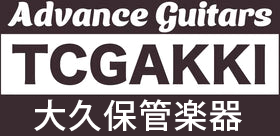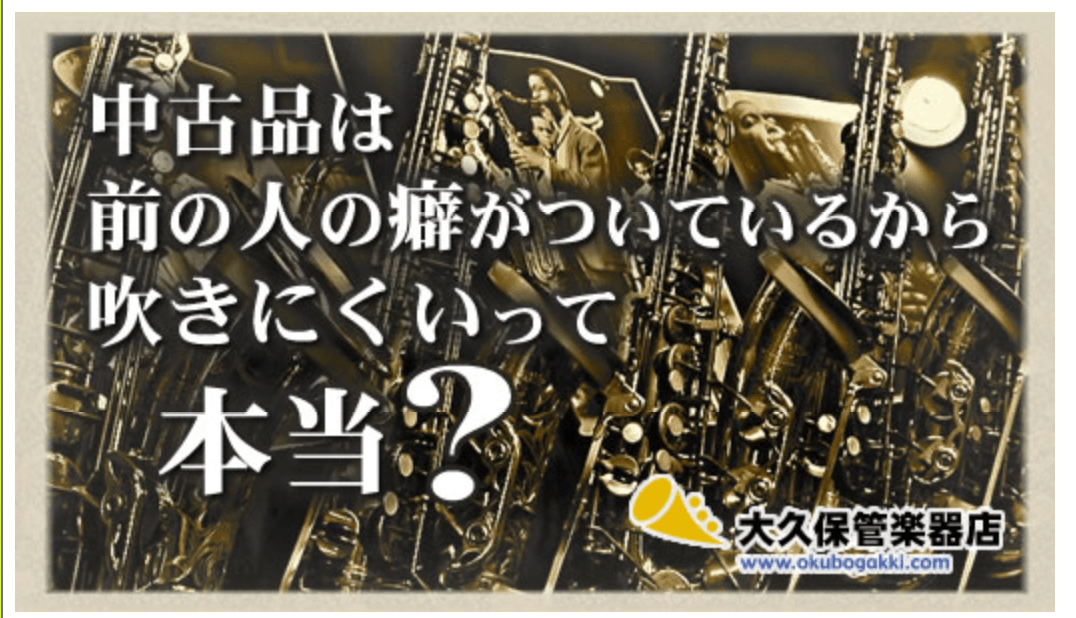
This is a question we receive from our customers on a daily basis,
Is it true that used wind instruments are hard to play because they have the habits of the previous owner?
Here is the answer to this question.
Yes, to be clear,

All of the instruments in our store, as well as those in your possession, are used. If it is true that used instruments are difficult to play because of their habits, then your instrument has already been transformed into a bad instrument with its own habits,
"Hey, hey, hey, you're being rude. I don't have any bad habits.
I'm sorry.
May I take a look at your wonderful instrument?
Uh... oh... oh no... no... no... no... no... no... no... no... no... no... no... no... no... no...
"What the hell is that?
No, in this state, it must be quite difficult to play......first of all, the tampo is floating...,
I'm sure it's very hard to blow in this condition............

If you have had the experience of feeling that "used instruments have a habit = hard to blow", you may be able to find the cause of the problem. If you have experienced that, most of the causes are defects in maintenance and adjustment. Deterioration due to normal use that does not lead to breakage or malfunction, such as slight misalignment of pads, dirt in the tubes, and wear and tear of felts, corks, etc., can adversely affect response and resonance.
However, there are surprisingly many cases where the person who continues to use the instrument does not notice any symptoms. When someone else plays an instrument in such a state, he or she may say, "Oh, it's kind of hard to play. When someone else plays the instrument in such a state, they may feel that it is difficult to play, or that it has a habit.
What is even more interesting is that when we ask our customers about the source of their information, "Used instruments have the habits of their predecessors," they reply, "Well, I'm not sure,They are people who should not be satisfied with second-hand instruments.It is very often the case that they are in a position where they do not want to be satisfied with second-hand products.(-_- me;)
In other words, the "previous owner's habit" is not a discourse based on a solid verification, but a so-called negative campaign. If you think about it, ordinary people rarely have a chance to compare a new one with a used one. They focus only on the negative aspects of the instruments, without mentioning the positive effects of breathing on the sound of the instrument. It is unfortunate.
I don't mean to counter-attack, but to divide new instruments into new=safe and used=unsafe is not only to miss the opportunity to buy a used instrument at a good price, but also to miss the opportunity to buy a used instrument at a good value for money,It is also a recipe for unexpected pitfalls.
(What is it?
In our homepage's feature column, "How Used Musical Instruments Appear on Store Shelves: Wind InstrumentsIn this column, we introduce the process of reconditioning a first-class saxophone from one of the largest brands until it is put on the store shelves.

As you can see, the saxophones had some distortions and imperfections in the tubes, parts, and molding that could not have been caused by use damage. The pieces were not selected to be terrible as individuals, but rather average or even slightly above average for this brand. The same can be said for other top manufacturers' products.
(I won't even discuss the very cheap Chinese products, though...)
Not all instruments, even new ones, are assembled in 100% condition.If you put them all on the store shelves as they arrive from the factory, there will be a constant stream of complaints. It is hardly known that the technicians at distributors and retailers do a lot of reconditioning in some cases.

There is also the general notion that the instruments are "hit or miss",The technical workmanship at the time of manufacture is a factor.If an instrument is well-designed, it can be corrected and readjusted to its original design. If an instrument is well-designed, it can be corrected and readjusted according to the original design, and the difference between the two will be very small. Of course, there will be individual differences, but you will rarely find a so-called "wrong" instrument.
(Although very cheap Chinese instruments are out of the question, but...)

Okubo Wind Instruments believes that the first and foremost prerequisite for selecting an instrument is that it has been well tuned and maintained.In this regard, all of the products we sell can be tried out in a condition that satisfies the first condition. If you are not misled by brands and signs, and face the instruments straight, you will be able to find a good instrument at a good price.


